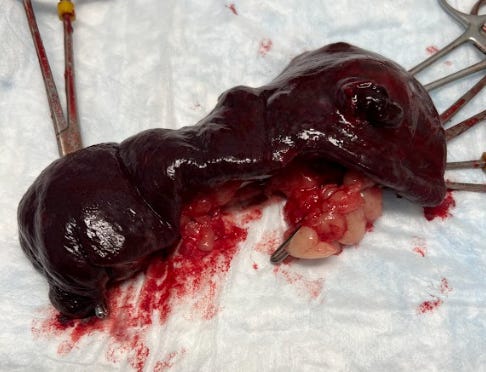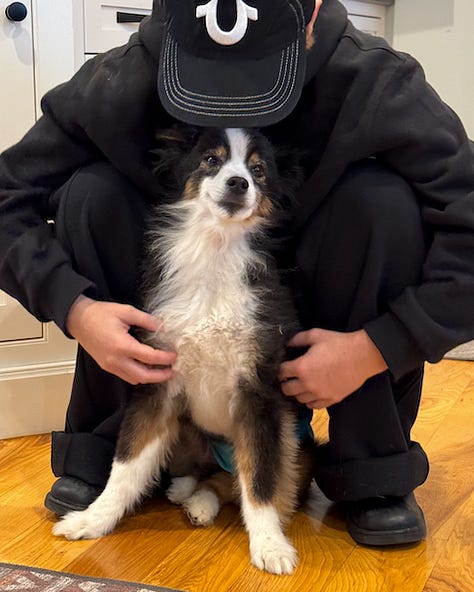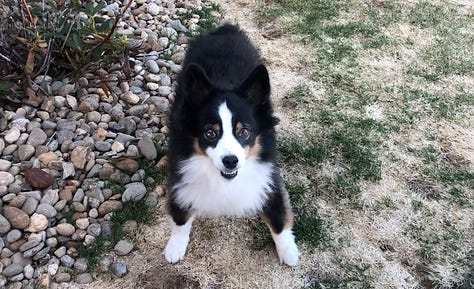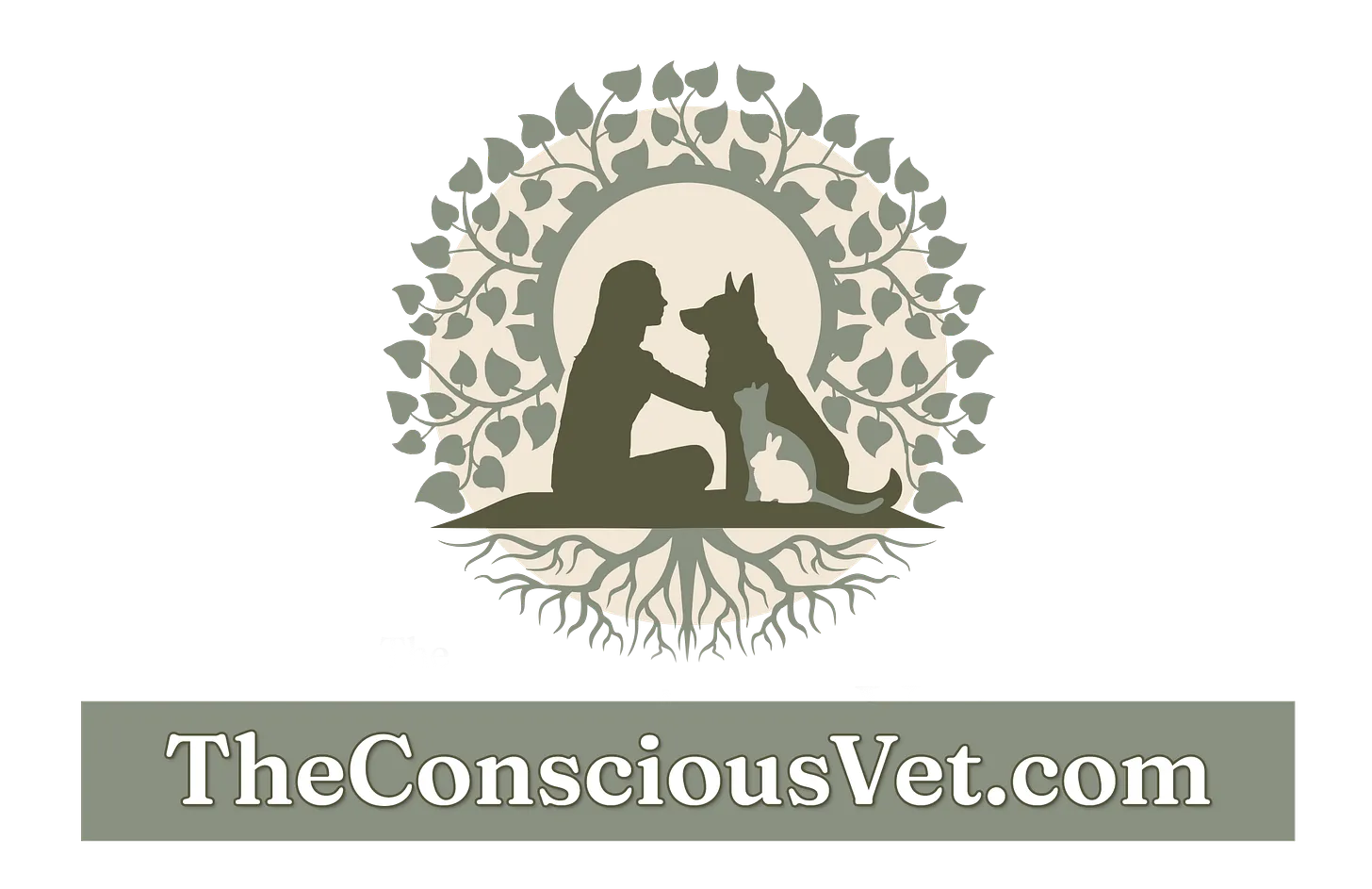When Your Own Dog Collapses: Panic, Intuition, and the Will to Fight
It was a beautiful Monday morning. The sun was out, a soft breeze drifted through the air, and I took a walk before heading into work. I knew I’d be indoors for the next ten hours, so I wanted to soak up nature while I could. I had no idea that walk would be the calm before the storm.
When I returned home, my husband met me in a panic. Our 13-year-old mini Australian Shepherd, Boo, had collapsed. He didn’t know what to do and had been waiting anxiously for me. I rushed to Boo’s side, instantly checking his gum color—white. That’s a terrible sign. Healthy gums are pink. White means shock, blood loss, or internal bleeding.
My stomach dropped.
My heart sank.
Tears started to well.
Boo wasn’t just any dog. He’s been my shadow for over a decade. Neurotic, lovable, wild. The kind of dog who spins in circles until he wipes out, then gets up and spins some more. Now he was limp in my arms, quiet and laying his head on my shoulder with my support. As a veterinarian, the medical thoughts race through your head at a rocket-fast pace—all of which were not good.
We rushed to the hospital. I cradled him in the passenger seat, whispering to him the whole way. He didn’t stir. I kept my hand on his chest just to feel it rise and fall.
When we arrived, my team—who knows Boo well—saw my face and sprang into action. I suspected an internal bleed and confirmed it with ultrasound. His abdomen was full of free fluid. Blood.
We acted fast.
I had a Chinese herb in the hospital called Yunnan Baiyao. It’s a miracle for hemorrhage. I gave Boo two capsules immediately.


We placed an IV catheter, drew blood, took X-rays. His hematocrit (red cell count percentage) was 17%—less than half of what it should be. His blood was leaking into his belly, likely from his spleen.
Our internal medicine specialist found two masses on the spleen—one was actively bleeding. He’d need a transfusion before surgery, but we didn’t have any blood in-hospital. My daughter drove Boo to the nearest emergency clinic. By the time he got there, his hematocrit was up to 25%. The herbs were working. The bleeding had slowed.
A sigh of relief. He was responding in a positive way.
That night, I brought him home. I monitored him all night and scheduled surgery for the next morning.
Performing surgery on your own dog is a surreal experience. You have to disconnect the love and focus like a surgeon. But you feel everything. I remember staring at his spleen, bleeding into his abdomen, and thinking: "Stay with me, Boo."
I meditated that morning. Prayed. Called in my angels. And then I did what I’ve done thousands of times—I operated. And it went beautifully. The spleen came out with minimal blood loss. We recovered him gently. Slowly. With love.


Boo was quiet for the first day. Tired. Not himself. But that was okay. Rest is healing. By day three, he was back to his quirks. Barking at shadows. Demanding cucumbers—his favorite snack.
The biopsy results aren’t back yet. It could be cancer. It might not be. Right now, I’m focusing on his recovery. On his joy. On today.
Looking back, there were signs. Subtle ones. Boo had started refusing cucumbers the week before. He seemed tired in the evenings. We chalked it up to age. Now I know better.
This experience reminded me why I do what I do. Why I fight for pets and advocate for clients. Because sometimes the difference between life and death is instinct. A decision. A moment of action.
Boo gave me a scare I’ll never forget. But he also reminded me how much love exists in the world—in our families, our teams, and in the bond between a human and her dog.
So today, I breathe with more gratitude. I hold space for every pet owner facing the unthinkable. And I continue to show up—fiercely, intuitively, completely.
Because they deserve it. Because Boo deserved it.
And because this is what it means to be The Conscious Vet.














